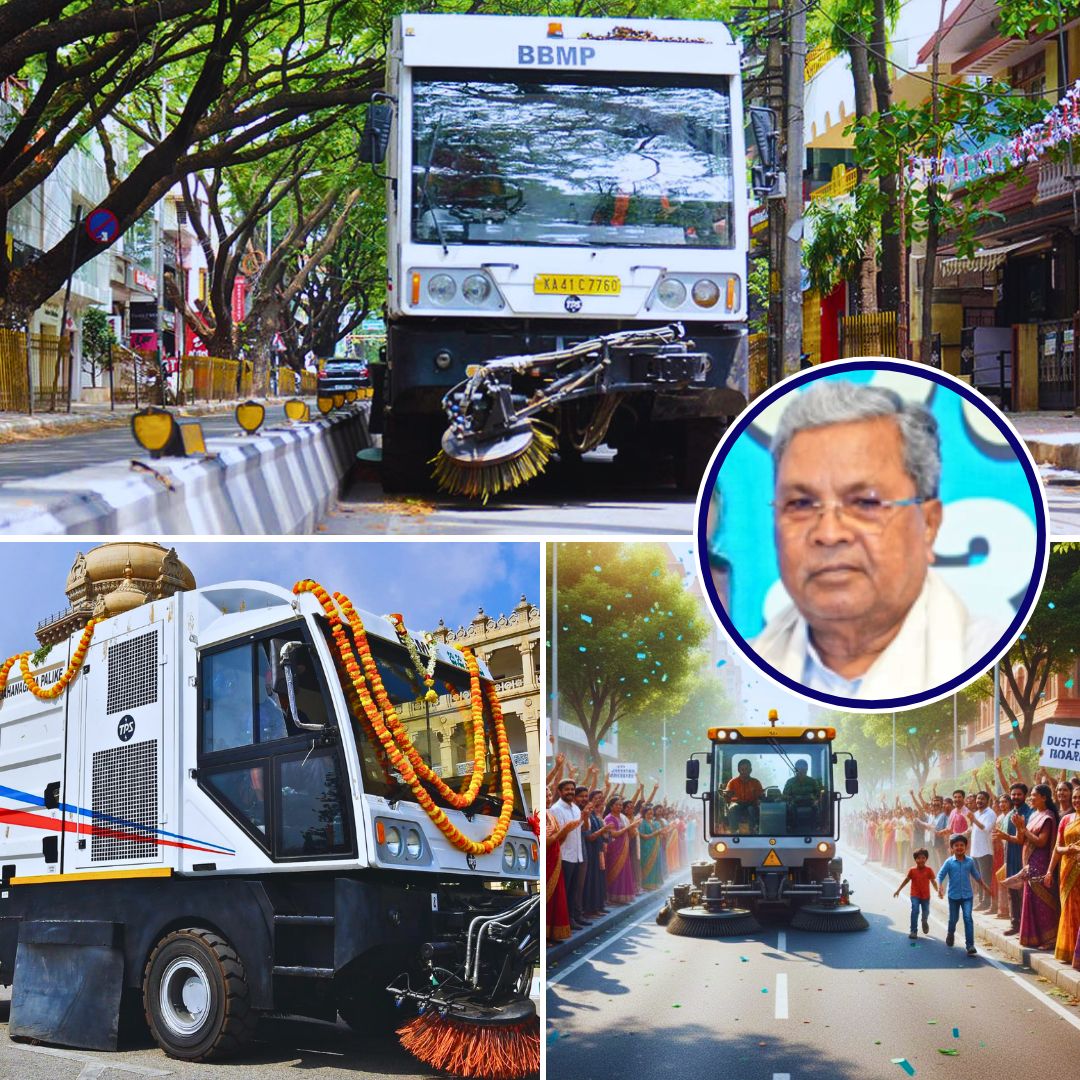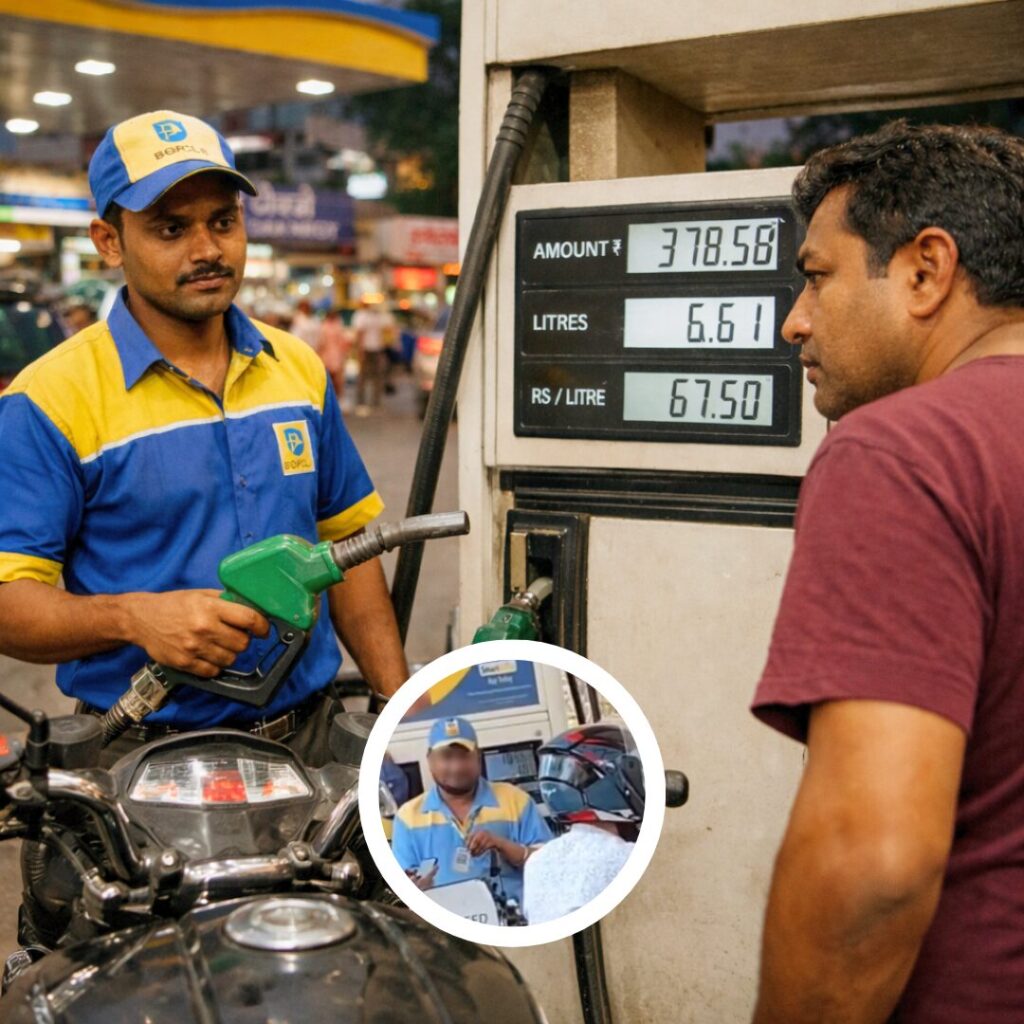The Karnataka Cabinet has approved a ₹613.25 crore plan to rent 46 mechanical road-sweeping machines for seven years across Bengaluru, aimed at improving road cleanliness and combating dust pollution.
These machines will be deployed across the jurisdictions of the Greater Bengaluru Authority (GBA) and its five municipal corporations, with the entire expenditure borne by these corporations.
While the state government defends the rental scheme, citing the prohibitive upfront cost of purchasing the machines, critics, civic activists, and opposition parties argue that outright purchase would be far more economical, with experts estimating purchase costs to be 10 to 20 times less.
The controversy has sparked political and public debate around fiscal prudence, transparency, and effective urban planning in Bengaluru.
Cabinet’s Approval and Project Details
On 13 November 2025, the Karnataka Cabinet gave administrative approval to the Greater Bengaluru Authority’s proposal to rent 46 mechanical road-sweeping machines over a seven-year period, at a total cost of ₹613.25 crore. This effectively means spending roughly ₹1 crore annually per machine.
The machines will be distributed among Bengaluru’s five new municipal corporations to maintain road hygiene and tackle the city’s escalating dust pollution problem.
Originally, the GBA had proposed renting 59 machines for ₹781 crore, but after review by the Urban Development Department (UDD), the number of machines was reduced to 46, with a slight increase in the per-unit cost by ₹10 lakh before final Cabinet approval.
Law Minister H.K. Patil stated that the rental model was chosen primarily because the municipal corporations lack the financial capacity to make a large upfront investment required to purchase the machines outright.
Currently, Bengaluru operates with only 26 existing mechanical sweepers, criticized frequently for their subpar performance, leaving many city roads dusty and vulnerable to air pollution.
The cabinet hopes that the new machines will deliver a robust and uniform cleaning effort across the city’s arterial and sub-arterial road network, covering approximately 1,682.10 kilometres out of Bengaluru’s total 12,878.89 kilometres of roads.
Technical Evaluations and Cost Analysis
The cabinet’s decision followed months of internal reviews and expert consultations. In April 2025, the GBA formed a high-level technical committee headed by R. Selvamani, Managing Director of the Karnataka Urban Infrastructure and Finance Corporation (KUIDFC), to evaluate whether machine purchase or rental offered a better economic model.
The committee’s August 2025 report strongly recommended purchasing the sweeping machines outright and contracting separate agencies for operations and maintenance – a model that had been in limited use previously.
According to their findings, outright purchase would be significantly cheaper than rental over the long term.
Subsequently, the GBA created an in-house committee that brought in consulting firms RITES Ltd. and Boston Consulting Group (BCG) for further evaluation. BCG’s detailed analysis confirmed that purchasing each sweeper with attachments, including hook loaders and containers, would cost around ₹3 crore.
They suggested a hybrid financial model involving 40% upfront payment with the balance linked to machine performance per kilometre, thereby easing some immediate capital burden.
Nevertheless, BCG’s study also calculated the rental cost amounted to approximately ₹50 lakh more per vehicle compared to purchasing.
Despite this clear evidence of higher lifetime costs for renting, the Cabinet chose the rental model, citing that the municipal corporations could not afford the “huge initial expenditure” required for outright purchase.
Public and Political Reactions
The decision to spend over ₹600 crore on renting machines rather than acquiring them has sparked widespread criticism.
Opposition parties, led by the Bharatiya Janata Party (BJP), accused the Congress government of financial mismanagement and “massive misuse of public funds.” Union Minister Shobha Karandlaje raised allegations of inflated costs and called for a parliamentary probe into the deal.
Civic activists and Bengaluru residents have also expressed disapproval, questioning why Bengaluru’s administrations would opt to pay an exorbitant rental fee when purchasing similar machines costs a fraction -reports suggest outright purchase would be around ₹30–35 crore total for the whole fleet.
Many have taken to social media expressing disbelief and frustration at the decision, pointing to ongoing complaints about poor road cleanliness and deteriorating air quality.
Additional concerns focus on the operational effectiveness of the rented machines – will they be maintained rigorously, or suffer the same neglect as the 26 existing mechanical sweepers which are often criticised for inefficiency? Transparency advocates call for clear terms in the rental contracts and regular audits to ensure accountability.
Background: Bengaluru’s Dust and Pollution Challenges
Bengaluru’s battle with dust pollution and road cleanliness is long-standing. The city’s rapid urban growth, coupled with expanding road networks and construction activities, has significantly increased dust levels, exacerbating air quality problems.
Residents have frequently complained about dirty streets and respiratory health risks.
Previous mechanical sweeping efforts have struggled due to aging fleets, insufficient numbers, and operational difficulties. This has led to an urgent demand for mechanised, efficient cleaning solutions.
The new rental plan follows multiple stalled procurement attempts for modern sweepers under the Bruhat Bengaluru Mahanagara Palike (BBMP), which was split into five corporations in 2023 to decentralize urban management.
The Logical Indian’s Perspective
The need for cleaner, healthier cities like Bengaluru is undeniable – quality of life and public health depend critically on effective urban sanitation and pollution control.
However, public funds must be disbursed with utmost transparency, fiscal prudence, and sustainable planning. The decision to rent sweeping machines at such an inflated cost over seven years demands scrupulous examination.
The government’s justification of unaffordability for upfront purchases raises questions about financial management and long-term urban asset ownership models.
It is vital to explore innovative financing options beyond outright rental or purchase, such as public-private partnerships or staggered acquisition schemes that provide value for money and operational control.
As Bengaluru pursues better cleanliness, it must also invest in governance frameworks that ensure accountability and empower citizens. Meaningful public dialogue, data-driven policy making, and oversight can help prevent costly missteps.












